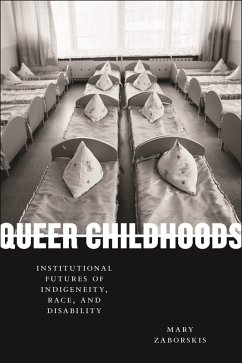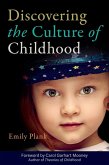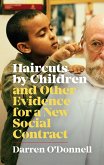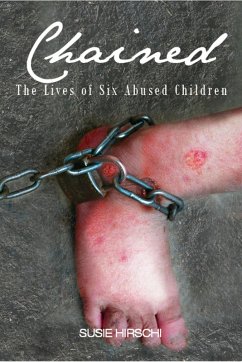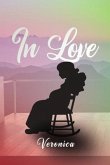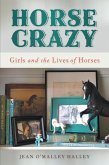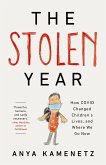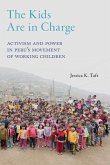Explores how the institutional management of children's sexualities in boarding schools affected children's future social, political, and economic opportunities
Tracing the US's investment in disciplining minoritarian sexualities since the late nineteenth century, Mary Zaborskis focuses on a ubiquitous but understudied figure: the queer child. Queer Childhoods examines the lived and literary experiences of children who attended reform schools, schools for the blind, African American industrial schools, and Native American boarding schools. In mapping the institutional terrain of queer childhoods in educational settings of the late nineteenth- and twentieth-century, the book offers an original archive of children's sexual and embodied experiences.
Zaborskis argues that these boarding schools-designed to segregate racialized, criminalized, and disabled children from mainstream culture-produced new forms of childhood. These childhoods have secured American futures in which institutionalized children (and the adults they become) have not been considered full-fledged citizens or participants. By locating this queerness in state archives and institutions, Queer Childhoods exposes a queer social history entangled with genocide, eugenics, and racialized violence.
Tracing the US's investment in disciplining minoritarian sexualities since the late nineteenth century, Mary Zaborskis focuses on a ubiquitous but understudied figure: the queer child. Queer Childhoods examines the lived and literary experiences of children who attended reform schools, schools for the blind, African American industrial schools, and Native American boarding schools. In mapping the institutional terrain of queer childhoods in educational settings of the late nineteenth- and twentieth-century, the book offers an original archive of children's sexual and embodied experiences.
Zaborskis argues that these boarding schools-designed to segregate racialized, criminalized, and disabled children from mainstream culture-produced new forms of childhood. These childhoods have secured American futures in which institutionalized children (and the adults they become) have not been considered full-fledged citizens or participants. By locating this queerness in state archives and institutions, Queer Childhoods exposes a queer social history entangled with genocide, eugenics, and racialized violence.
Dieser Download kann aus rechtlichen Gründen nur mit Rechnungsadresse in A, D ausgeliefert werden.

